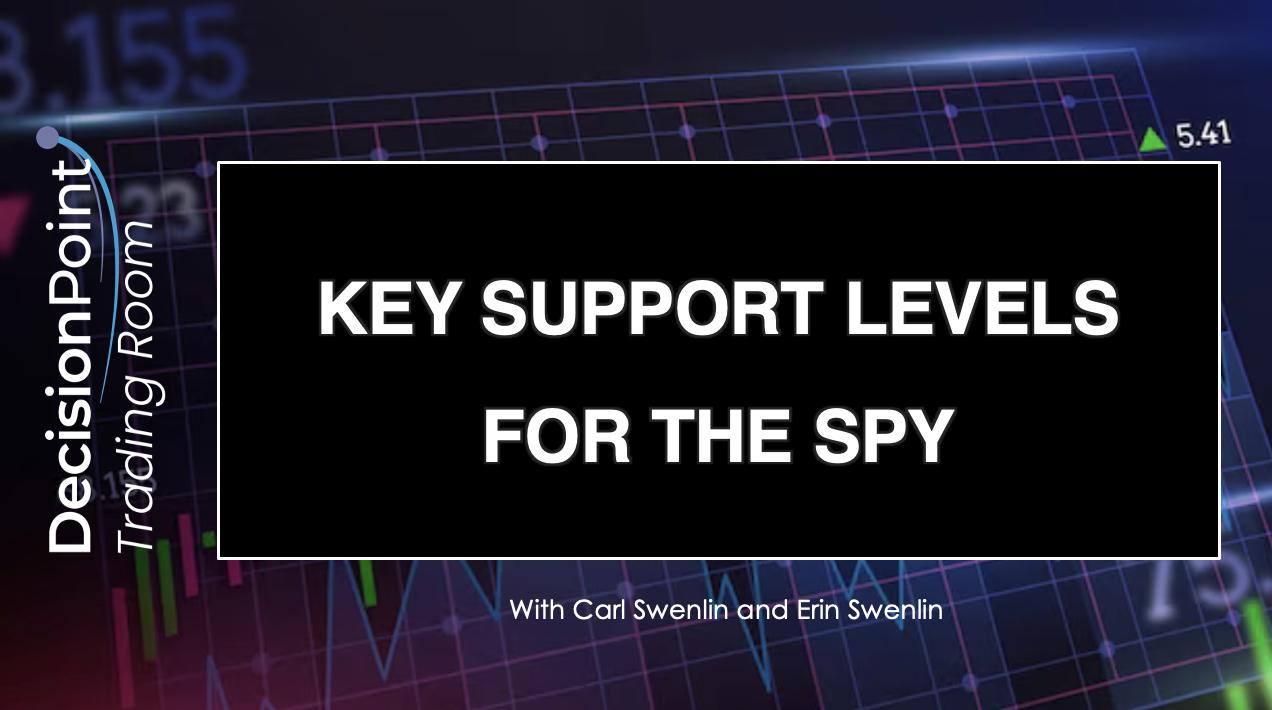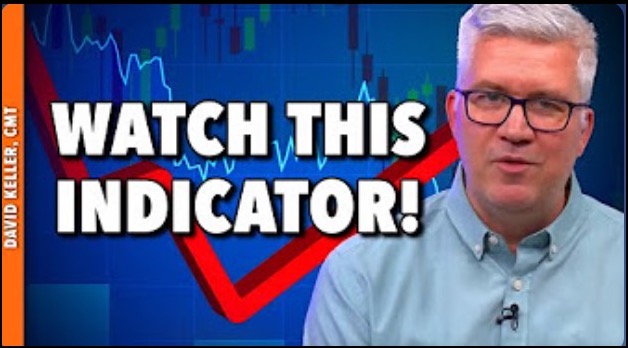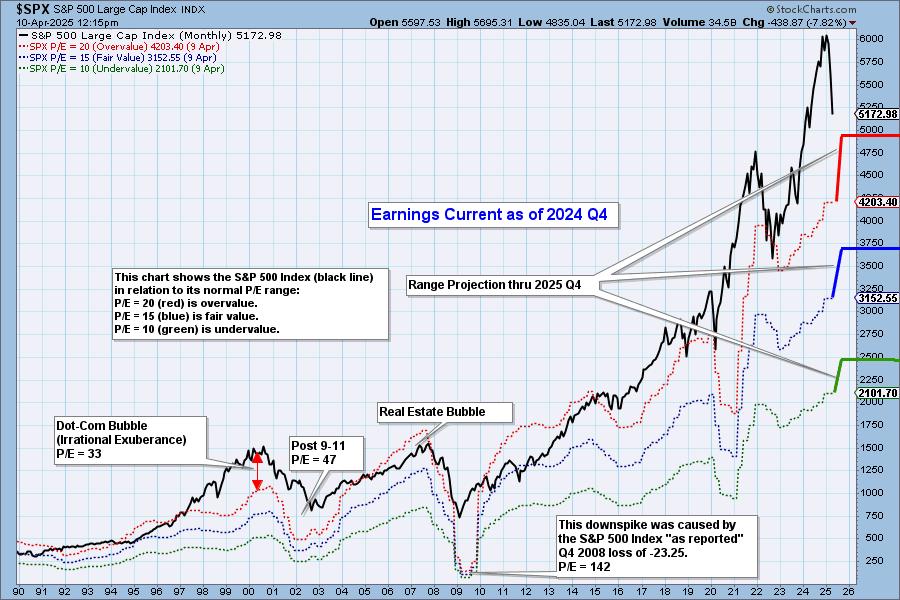There are simply no sellers out there. We can argue about low volume levels, the artificial Fed affect and lackluster economic data, but there are clearly more buyers than sellers in the stock market and stocks are rising. Admittedly, stocks are getting quite overextended again and ripe for a rest. Timing such a rest, however, has proven difficult because buyers step in at the first sign of weakness. The S&P 500 ETF (SPY) bottomed on April 18th and is up over 7% since then. The four offensive sectors are up 8% or more. The Basic Materials SPDR (XLB) and Energy SPDR (XLE) are up more than 9%. These six sectors are in runaway train mode, but we will see a correction at some point.
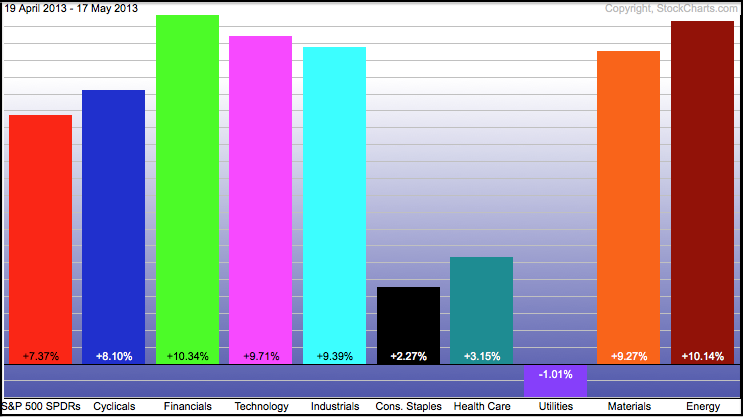

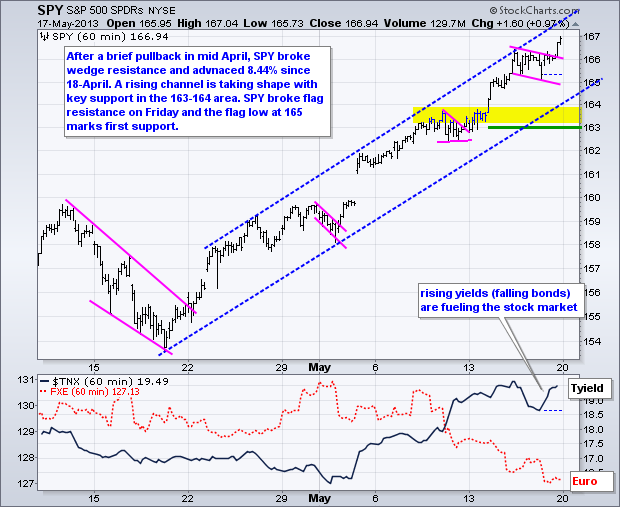
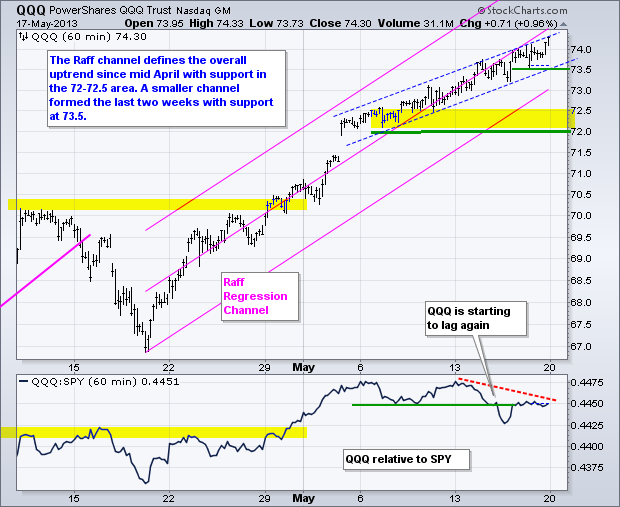
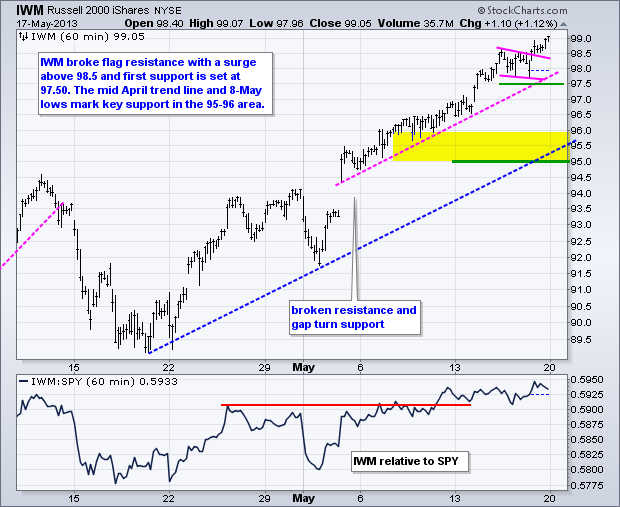
**************************************************************************
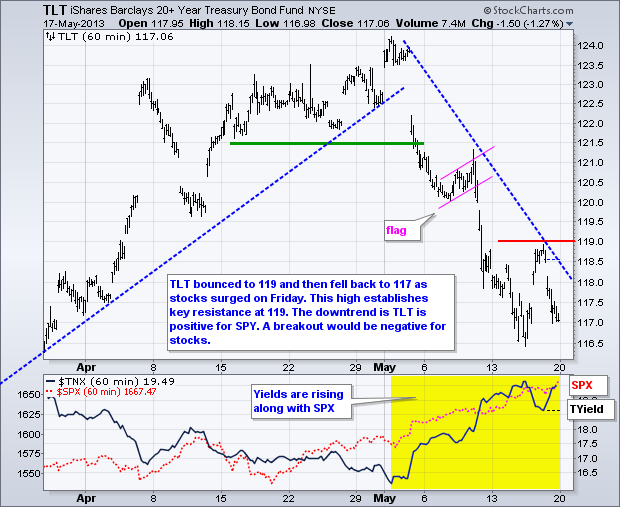
**************************************************************************
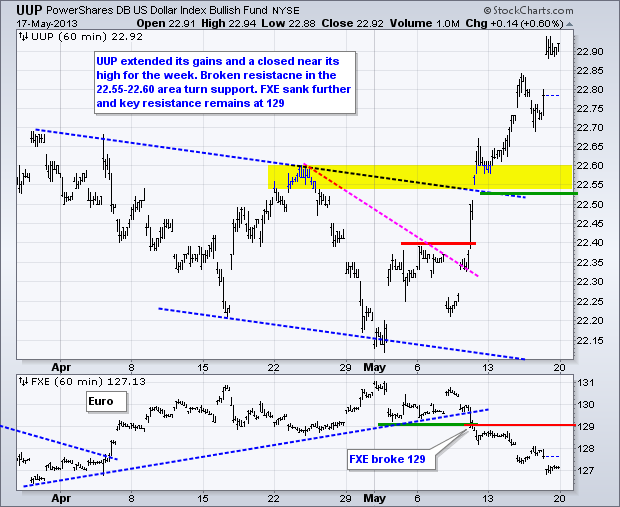
**************************************************************************
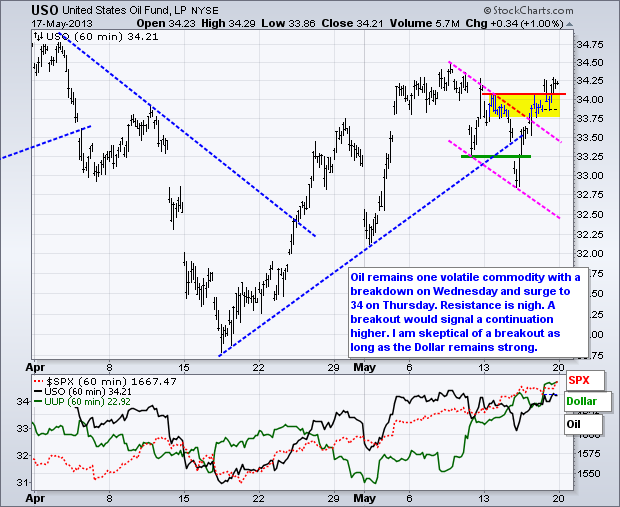
**************************************************************************
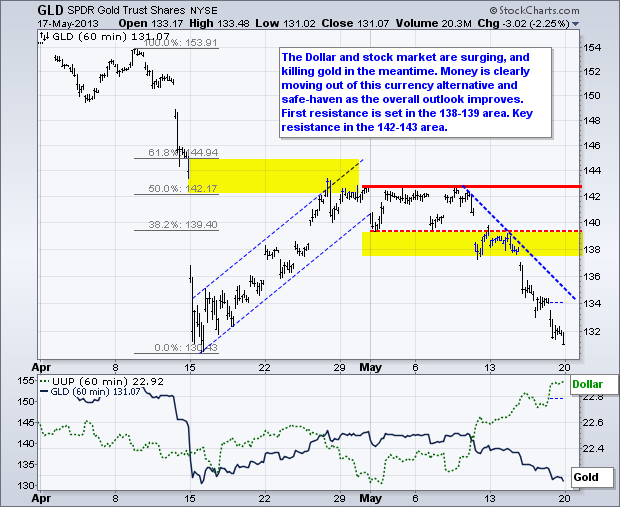
**************************************************************************
Key Reports and Events (all times Eastern):
Wed - May 22 - 07:00 - MBA Mortgage Index
Wed - May 22 - 10:00 - Existing Home Sales
Wed - May 22 - 10:00 - Bernanke Testifies before Congress
Wed - May 22 - 10:30 - Oil Inventories
Wed - May 22 - 14:00 - FOMC Minutes
Thu - May 23 - 08:30 - Jobless Claims
Thu - May 23 - 09:00 - FHFA Housing Price Index
Thu - May 23 - 10:00 - New Home Sales
Thu - May 23 - 10:30 - Natural Gas Inventories
Fri - May 24 - 08:30 - Durable Goods Orders
Charts of Interest: Tuesday and Thursday
This commentary and charts-of-interest are designed to stimulate thinking. This analysis is
not a recommendation to buy, sell, hold or sell short any security (stock ETF or otherwise).
We all need to think for ourselves when it comes to trading our own accounts. First, it is
the only way to really learn. Second, we are the only ones responsible for our decisions.
Think of these charts as food for further analysis. Before making a trade, it is important
to have a plan. Plan the trade and trade the plan. Among other things, this includes setting
a trigger level, a target area and a stop-loss level. It is also important to plan for three
possible price movements: advance, decline or sideways. Have a plan for all three scenarios
BEFORE making the trade. Consider possible holding times. And finally, look at overall market
conditions and sector/industry performance.

About the author:
Arthur Hill, CMT, is the Chief Technical Strategist at TrendInvestorPro.com. Focusing predominantly on US equities and ETFs, his systematic approach of identifying trend, finding signals within the trend, and setting key price levels has made him an esteemed market technician. Arthur has written articles for numerous financial publications including Barrons and Stocks & Commodities Magazine. In addition to his Chartered Market Technician (CMT) designation, he holds an MBA from the Cass Business School at City University in London.
Learn More
